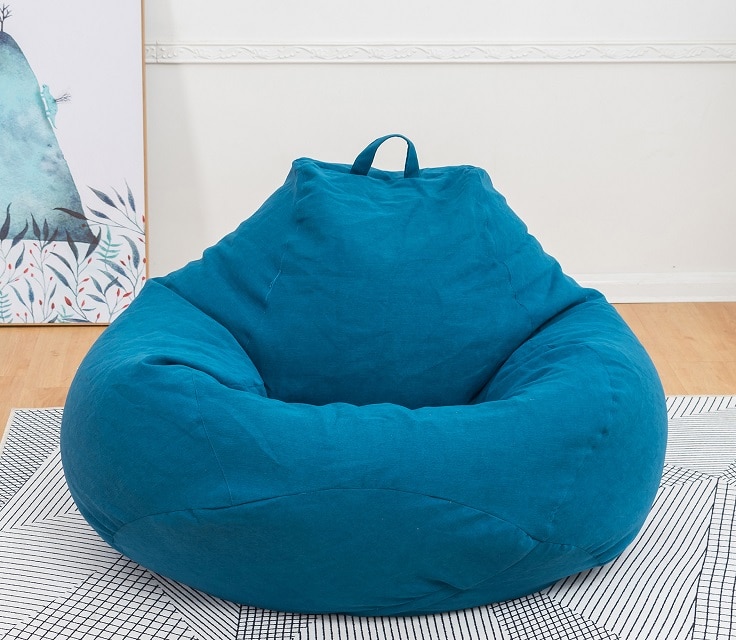There are certain parts of your office that are obvious to clean. The windows that let in light should be streak-free. Your desk should be uncluttered, and any coffee cup stains removed. It even makes sense to periodically clean your monitor, both the dusty backside and the screen. However, the office chair is often forgotten. Before you panic as you realize you can’t actually remember the last time you cleaned it, remember that this this article will help. We’re here to walk you through all the important steps on how to clean fabric office chairs. By the end, you’ll no longer have to worry about what you’re sitting on, and instead can get back to having a productive, meaningful day.
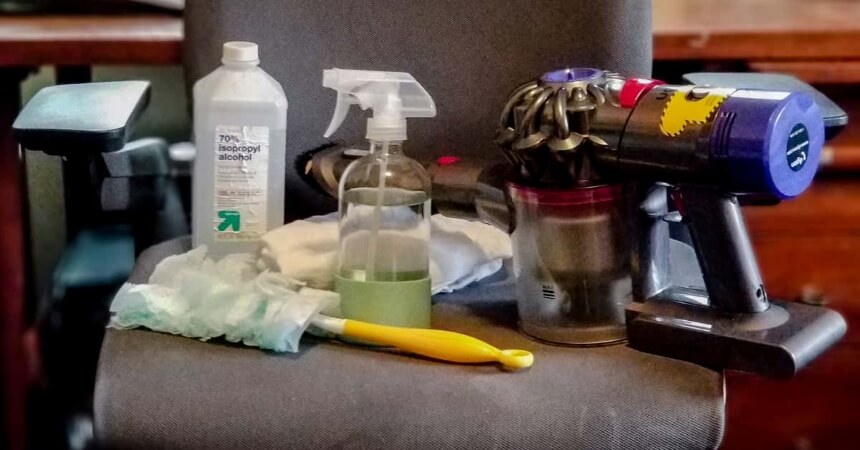
Your office chair upholstery should be cleaned every three to four months. Trusted Source HOW OFTEN TO DEEP CLEAN OFFICE FURNITURE AND FLOORING Office floors and furniture can get dirty very quickly. With so many people spending so much time in their cubicles, it should come as no surprise that desks, upholstery and floors in commercial areas are breeding grounds for dirt, bacteria and grime. www.servicemasterclean.com If you’re ready to get started, please follow these steps.
The first step in understanding how to clean fabric upholstery in office chairs is to first vacuum any large debris. A handheld vacuum cleaner is the best solution in this case. We recommend something like the Dyson V7 which is surely among the most powerful vacuums on the market, and comes with several tools, ideal for upholstery and debris in hard-to-reach places.
Take the vacuum and run it over the fabric on your office chair. Try your best to get into any cracks, in particular where the back of the chair meats the seat of the chair. If your office chair is particularly adjustable, you can always raise the back part to provide more room for your vacuum to get into.
One important tip is to not rub too hard with your vacuum attachment. Try to suction up the debris instead. Too much pressure can lead to crumbs becoming embedded in the fabric.
Once all the larger bits of dust and debris have been removed, it’s time to use a bit of elbow grease. Take a bowl and fill it with warm soapy water. Choose a fragrance-free, clear liquid soap (like this extra popular option by Seventh Generation) to avoid any unwanted stains and allergic reactions on your skin later on.
This will prevent any stains from forming on the fabric. You don’t need much soap, and just a few drops in 1 cup of water will be fine.
Use a clean, microfiber cloth. Dip it in the cleaning solution but then wring out any excess water. You want a damp cloth and not a soaking wet cloth.
Then, gently wipe down your fabric office chair. Again, don’t press too hard. Instead, gently wipe in large strokes start at the back of the seat and wipe towards the front. Repeat similar motions along the back of the chair and anywhere else there is fabric.
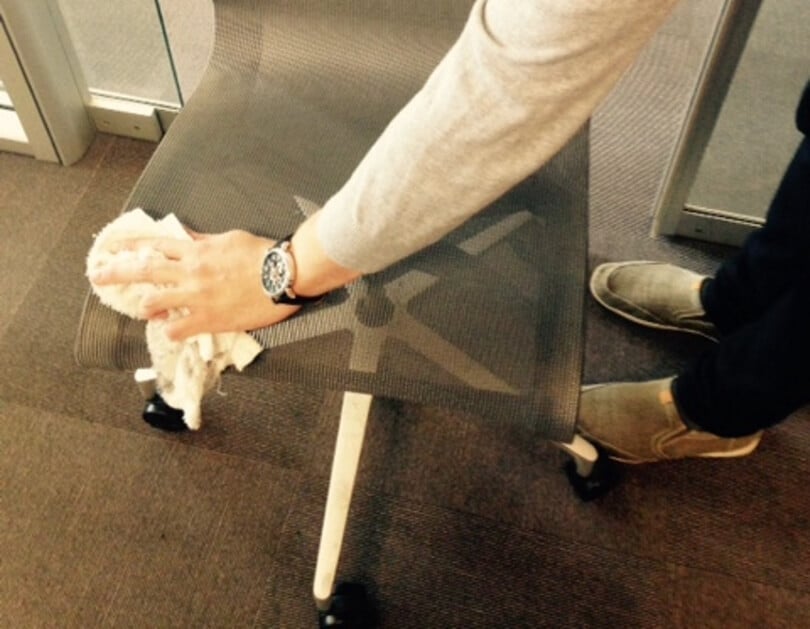
Once you have dried your chair, you should still keep it in a ventilated area. This will make sure it is completely dry and eliminate any risk of mold.
While you might be content with cleaning the fabric part of your office chair, there is still more to be down. the arms, wheels, and legs all needs to be cleaned. However, because they are made from either plastic or metal parts, their cleaning process is a bit different.
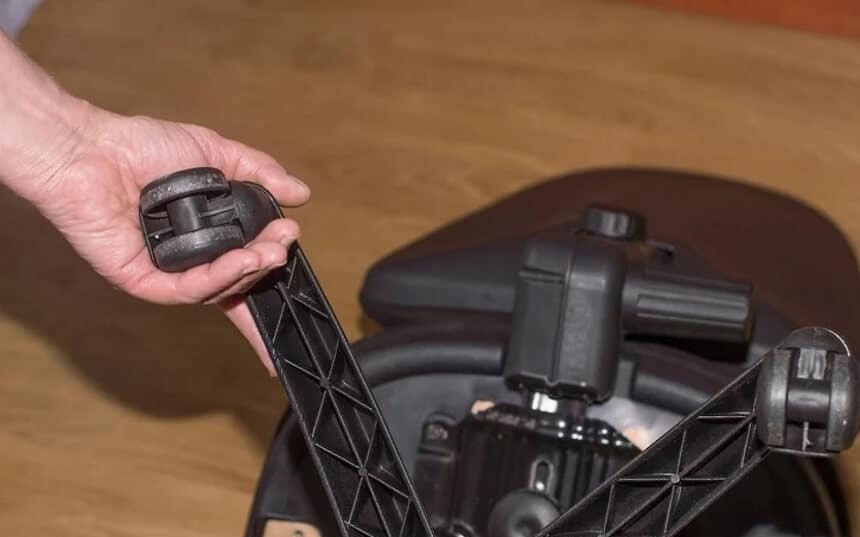
Once the chair is upside down, you can remove the wheels. While some wheels do pop off easily, some models need the use of a screwdriver. If there are screws involved, grab a container and put everything together so nothing gets lost.
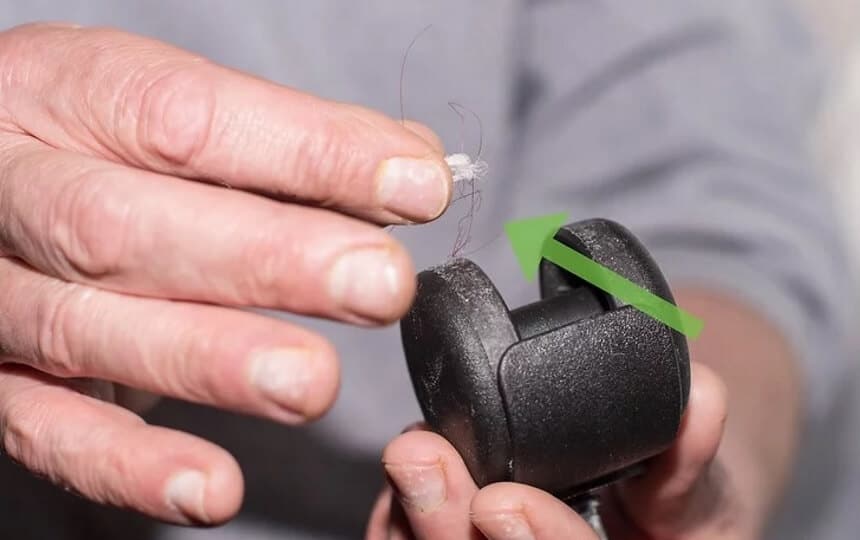
After scraping off debris, take a clean cloth and give the wheels a quick rub down so that any scraped debris is removed.
Using the same dish soap solution for the fabric, you can now clean the wheels, arms, and legs of your office chair. Use a fresh, clean cloth for this step.
Thankfully, because your office chair’s arms and legs are made out of either rubber or metal, it should be fairly easy to clean these. Once clean, dry them with a dry, clean cloth.
Once your wheels are thoroughly cleaned, you can use some paper towel to dry them. Make sure the towel gets into all the cracks so no moisture is left. If you are able to, you can always set the wheels to dry in a ventilated area for a few hours before reattaching them.
Once you are sure the wheels are dry, you can pop them back into place or use your screwdriver if need be.
Spills and stains happen to the best of us. Before panicking, know that there are a few simple steps to take.
First, check the care tag of your chair. This will tell you if certain products can be used, such as bleach or hot liquids. There are a few symbols to take note of.
Start by picking up any large debris. If you have broken a glass, use a paper towel to help pick the items up so you don’t risk cutting yourself. If you can, take a dust brush to the chair to gently brush off any larger pieces of debris.
Hopefully, you have a cleaning solvent on hand. Spray it on the fabric surface. This will act as a shield so any liquids aren’t absorbed into the fabric.
Take a wet cloth and gently blot the spill. You don’t want to rub as this will spread the stain and make it penetrate deep into the fabric’s fibers. Instead, gently blot the area, absorbing as much of the spill as possible.
If you’ve tried everything but still can’t get rid of that nasty stain, rubbing alcohol may help. However, don’t just pour the whole bottle on right away. Instead, take a cotton ball and test on a discreet area of your office chair. Sometimes, rubbing alcohol can discolor the fabric.
As long as your chair passes the test, you can move on to treating the stain. Take a fresh cotton ball and dip it in the rubbing alcohol. Gently blot the stain. Hopefully, the rubbing alcohol will work to bring up any stain, leaving you with a fresh-looking office chair.
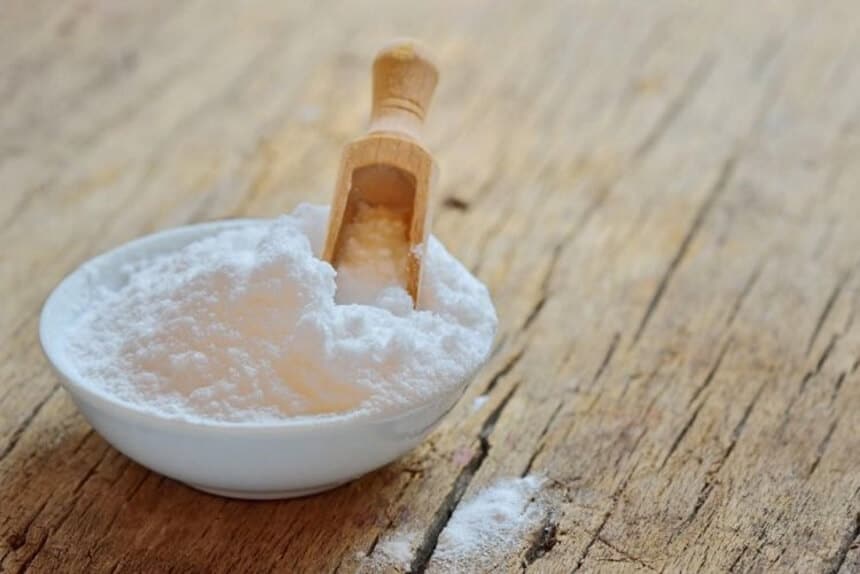
Simply shake a bit of baking soda on the fabric of your office chair. You don’t need a lot, and if you’re worried about the amount, try putting the baking soda in a saltshaker first.
Let the baking soda rest for at least an hour. During this time it will absorb the odors. Finally, take a vacuum cleaner and vacuum it all up. You will remove the baking soda and the unwanted odors!
Sometimes, the best of intentions simply aren’t enough. If you’ve followed all the steps and your office chair just doesn’t seem clean enough, there is no shame in calling a professional. They have the right tools to get the job done and can help you transform your office chair back into something you can be proud of.
We might forget the importance of cleaning our office chairs, or even think that the task is too time-consuming. However, it is important as not only will you be more productive in a clean environment but you will healthier, too. Whether you have an accidental spill or you’re just engaged in routine maintenance, understanding how to clean fabric office chairs is a must. As more of us work from home, keeping our home office neat and tidy is essential.


